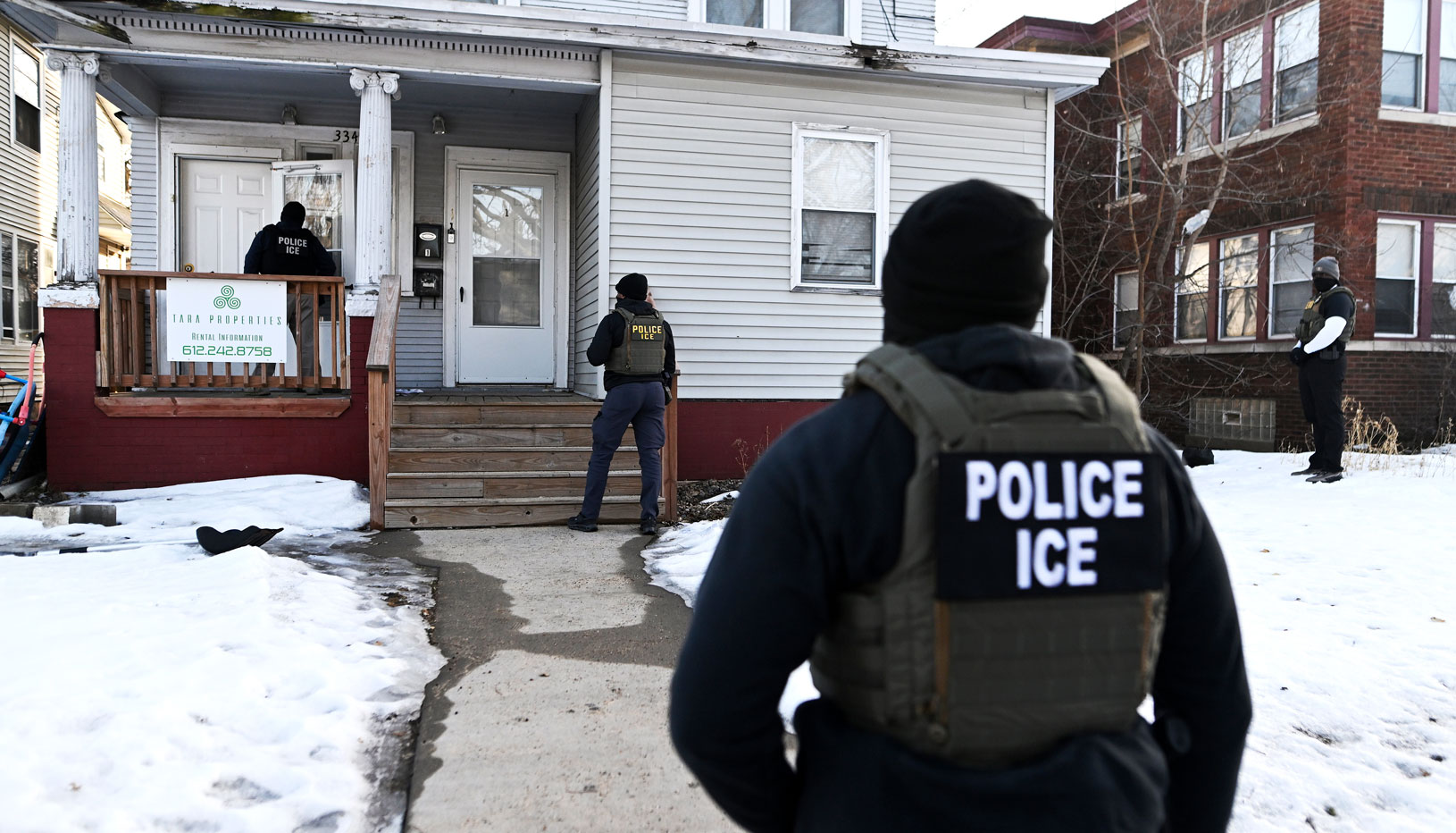
Stronger Rules Against Bias
Resumen: A patchwork of nondiscrimination policies has left the Department of Homeland Security with a profiling problem. Our proposed guidance would close the gaps.

Part of
The Department of Homeland Security (DHS) has a problem with discriminatory profiling. Too often, it relies on religious, ethnic, or racial stereotypes in carrying out its expansive counterterrorism mandate, as well as its other functions. DHS agents question Muslim travelers about their religious views when they enter the United States and single out Latino communities for detention and deportation. 1 They detain Americans at the border simply based on their country of birth. 2 Officers charged with identifying potentially risky travelers by looking for suspicious behaviors have said that the scientifically discredited program they used amounted to a back door for racial profiling. 3 The administration has disavowed anti-extremism programs that wrongly assumed that Muslims are predisposed to terrorism, and yet DHS continues to fund similar initiatives.4
President Joe Biden has made a strong commitment to ending discriminatory profiling. 5 Recognizing the need for a “systematic approach to embedding fairness in decision-making processes,” he issued an executive order on his first day in office calling for a sweeping review of federal policies to align them with the principle of equity.6 Secretary of Homeland Security Alejandro Mayorkas has taken important steps toward implementing this directive and curbing profiling. In September 2021, Mayorkas issued guidelines for immigration enforcement, declaring that “race, religion, gender, sexual orientation or gender identity, [and] national origin . . . shall never be factors” when making decisions about whom to apprehend and deport. 7 These guidelines incorporate critical protections to ensure compliance, such as audits of individual enforcement decisions to ensure consistency, the collection of comprehensive data on enforcement actions to facilitate systemic accountability, and a process for obtaining review of individual decisions.
But these measures are not enough. The administration must address biased practices across all DHS activities, including by shoring up the rules against discriminatory profiling that apply to the execution of the agency’s counterterrorism mandate. DHS’s current department-wide guidance on discriminatory profiling fails to cover religion, even as targeting of Muslims has been at the center of concerns about discriminatory profiling. That same guidance gives frontline agents discretion to inappropriately consider race, ethnicity, religion, national origin, and nationality. And it prescribes no means for measuring compliance, much less ensuring it. Another set of nondiscrimination rules, issued in 2014 by the Department of Justice (DOJ) — and which DHS claims to follow — exempts large swaths of DHS’s activities and effectively permits profiling in many situations.
DHS must strengthen its nondiscrimination rules, ensure that those rules cover all its activities, and develop effective accountability mechanisms. Building on our recommendations in A Course Correction for Homeland Security: Curbing Counterterrorism Abuses, this report proposes a model policy that would close current gaps. 8 The secretary of homeland security has the authority to adopt such a policy and should waste no time in doing so.
This report has been updated to clarify quoted language from an I&A policy.
Notas al Pie
-
1
Kariye v. Mayorkas, No. 2:22-cv-01916 (C.D. Cal., filed Mar. 24, 2022); the Mexican American Legal Defense and Educational Fund, the National Day Laborer Organizing Network, and the National Hispanic Leadership Agenda, Detention, Deportation, and Devastation: The Disproportionate Effect of Deportations on the Latino Community, May 2014, https://www.maldef.org/assets/pdf/DDD_050614.pdf. -
2
Mahita Gajanan, “CBP Commissioner: U.S. Border Officers ‘Overzealous’ in Detaining Iranian Nationals, Iranian-American Citizens,” TIME, February 12, 2020, https://time.com/5782835/iranian-nationals-detained-canada-border; and Customs and Border Protection (hereinafter CBP), “Iranian Supreme Leader Vows Forceful Revenge After US Kills Maj. General Qassim Suleimani in Baghdad — Threat Alert High,” Department of Homeland Security (hereinafter DHS), https://www.documentcloud.org/documents/6746395-Seattle-Field-Office-Memo.html. -
3
Michael S. Schmidt and Eric Lichtblau, “Racial Profiling Rife at Airport, U.S. Officers Say,” New York Times, August 11, 2012, https://www.nytimes.com/2012/08/12/us/racial-profiling-at-boston-airport-officials-say.html. -
4
See Faiza Patel and Meghan Koushik, Countering Violent Extremism, Brennan Center for Justice, March 16, 2017, https://www.brennancenter.org/sites/default/files/publications/Brennan%20Center%20CVE%20Report_0.pdf; and Rupa Shenoy, “Critics Say Biden’s Plan to Combat Domestic Extremism Repeats Past Mistakes,” World, July 1, 2021, https://theworld.org/stories/2021–07–01/critics-say-biden-s-plan-combat-domestic-extremism-repeats-past-mistakes. -
5
See, e.g., White House, “Remarks by President Biden in Address to a Joint Session of Congress,” April 28, 2021, https://www.whitehouse.gov/briefing-room/speeches-remarks/2021/04/29/remarks-by-president-biden-in-address-to-a-joint-session-of-congress; and Muslim Advocates, “Biden Day One Immigration Bill Includes NO BAN Act,” January 20, 2021, https://muslimadvocates.org/2021/01/biden-day-one-immigration-bill-includes-no-ban-act. -
6
Exec. Order No. 13,985, “Advancing Racial Equity and Support for Underserved Communities Through the Federal Government,” 86 Fed. Reg. 7,009 (January 20, 2021), https://www.federalregister.gov/documents/2021/01/25/2021–01753/advancing-racial-equity-and-support-for-underserved-communities-through-the-federal-government. -
7
DHS, “Guidelines for the Enforcement of Civil Immigration Law,” memorandum from Alejandro N. Mayorkas, secretary of homeland security, September 30, 2021, 5, https://www.ice.gov/doclib/news/guidelines-civilimmigrationlaw.pdf (emphasis added). The guidelines are not currently in effect; they have been vacated by a federal court for reasons unrelated to the rules they contain against discriminatory profiling. The Fifth and Sixth Circuits have split on the question of these guidelines’ legality, and the Supreme Court has granted certiorari to resolve the issue. Texas v. United States, 40 F.4th 205 (5th Cir. 2022); Arizona v. Biden, 31 F.4th 469 (6th Cir. 2022); and Application for a Stay of the Judgment Entered by the United States District Court for the Southern District of Texas, U.S. et al. v. State of Tex. and State of La., No. 22A17, https://s3.documentcloud.org/documents/22082659/22a17.pdf (cert. granted: https://www.supremecourt.gov/orders/courtorders/072122zr_7k47.pdf). -
8
Faiza Patel, Rachel Levinson-Waldman, and Harsha Panduranga, A Course Correction for Homeland Security: Curbing Counterterrorism Abuses, Brennan Center for Justice, April 20, 2022, https://www.brennancenter.org/our-work/research-reports/course-correction-homeland-security.
Más sobre la Reform Agenda for the Department of Homeland Security series
-
A Course Correction for Homeland Security
Twenty years after its founding, the Department of Homeland Security struggles to carry out its sweeping counterterrorism mission effectively and equitably. -
Holding Homeland Security Accountable
Reforms to focus DHS’s work and guard against overreach depend on strengthened internal oversight offices. -
Overdue Scrutiny for Watch Listing and Risk Prediction
Programs that determine people’s ability to travel are rife with civil liberties abuses, and the government has not demonstrated that they keep Americans safe. DHS must adopt transparency and accountability measures.






